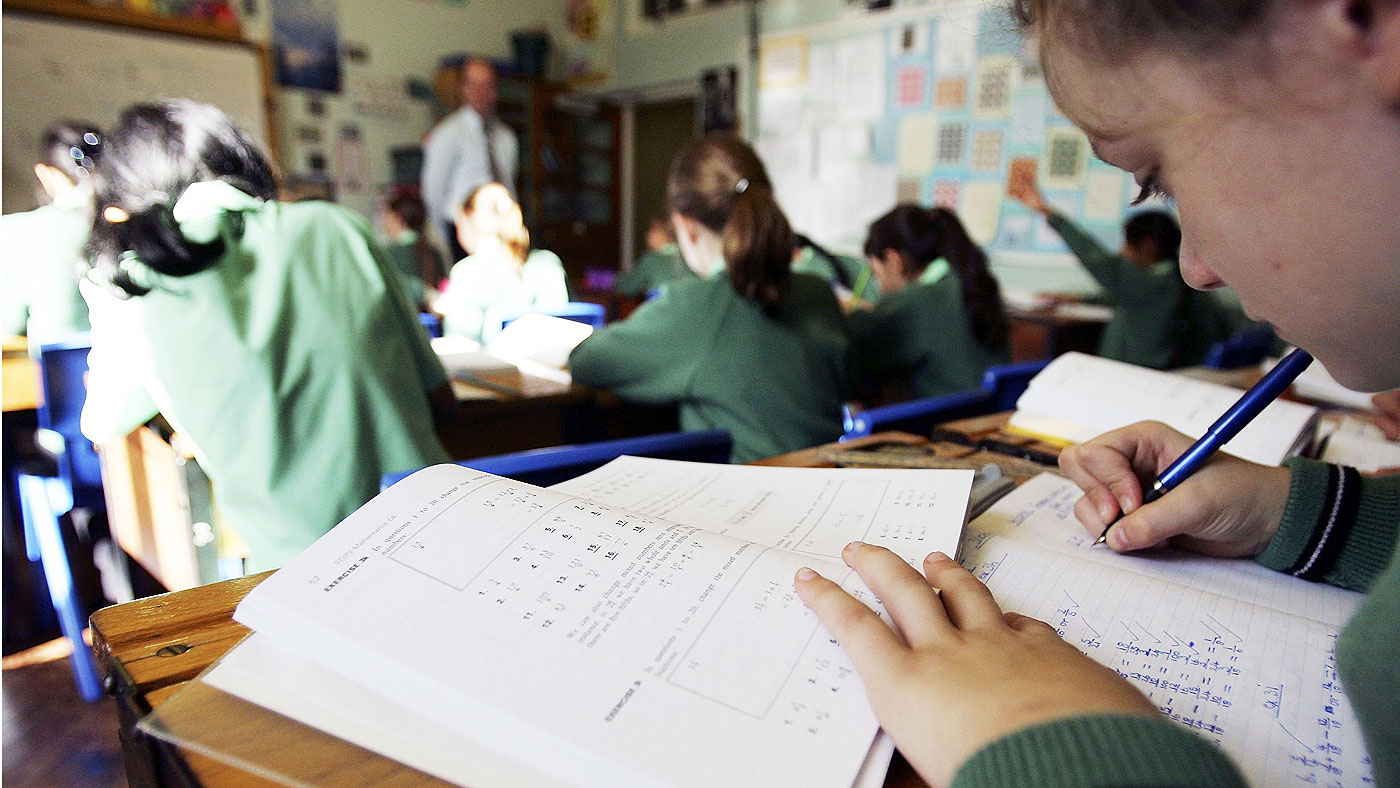UK pupils increasingly held back by limited vocabulary
Survey of teachers reveals growing ‘word gap’ affecting learning and exam performance

A free daily email with the biggest news stories of the day – and the best features from TheWeek.com
You are now subscribed
Your newsletter sign-up was successful
Schoolchildren are struggling to answer exam questions because they have an increasingly limited vocabulary, UK teachers have warned.
Around 80% of the 1,300 teachers surveyed for an Oxford University Press study said that primary and secondary pupils were held back in exams by their language deficiency.
Almost half of Year 1 pupils suffer from this “word gap” to the extent that it affects their ability to learn, respondents said, and the problem only improves slightly with age - 43% of Year 7 pupils also underperform due to their limited vocabulary.
The Week
Escape your echo chamber. Get the facts behind the news, plus analysis from multiple perspectives.

Sign up for The Week's Free Newsletters
From our morning news briefing to a weekly Good News Newsletter, get the best of The Week delivered directly to your inbox.
From our morning news briefing to a weekly Good News Newsletter, get the best of The Week delivered directly to your inbox.
The majority of respondents - 69% of primary school teachers and 60% of secondary school teachers - believed the problem was getting worse.
“Teachers believe the word gap occurs when children don’t read for pleasure or have enough opportunity to practise vocabulary,” says The Bookseller.
A separate report published this year found that “the reading age of children was stalling”, says The Times, “with 14-year-olds still reading the same level of books as 11-year-olds”.
As well as the immediate negative impact on school performance, teachers reported that limited vocabulary “affected pupils' self-esteem, mental health and wider life chances”, says the Times Educational Supplement.
A free daily email with the biggest news stories of the day – and the best features from TheWeek.com
Research has shown that “children with language difficulties at age five are four times more likely to have reading difficulties in adulthood, three times as likely to have mental health problems and twice as likely to be unemployed when they reach adulthood”.
The OUP report is calling for a “dialogue” with policymakers and schools to ensure that pupils exhibiting signs of vocabulary deficiency are identified and supported.
Jane Harley, OUP strategy director for UK Education, said that a child affected by this “word gap” is “seriously limited in their enjoyment of school and success beyond”.
“Language is at the heart of education and we believe that more needs to be done to address the issue throughout school and give teachers support to make a difference to these children’s lives,” she said.